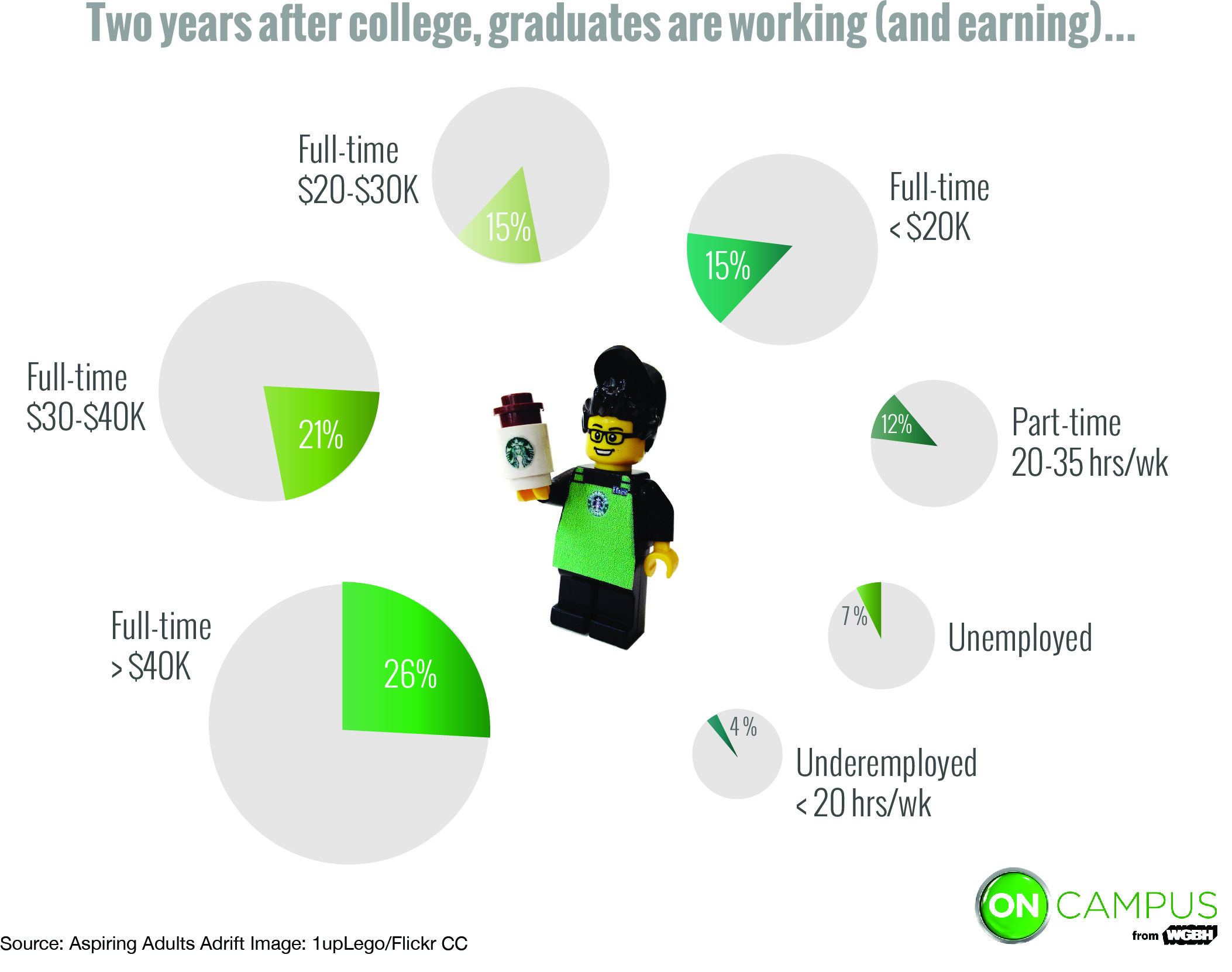
New research finds that college graduates don't just have trouble finding work, they also have trouble staying engaged (MRehan/Flickr CC).
Three years ago, sociologists Richard Arum and Josipa Roksa found that college students learn little while in school. Their book, Academically Adrift, shocked the academy and provoked angry responses.
Now, the two provocateurs are back. Their sequel is called Aspiring Adults Adrift. It follows the same students after graduation and concludes that schools focus on social life rather than academics, and that levies a high tariff on young adults. WGBH's On Campus recently sat down with Arum, and asked him why he wanted to track these young adults as they attempt to enter the working world.
______________________________________________________

CARAPEZZA: You open your book talking about this recent graduate who you call Nathan, can you tell us about him and his experience?
ARUM: Nathan is a student who graduated from a public university with a 3.9 GPA as a business major. Like many of the graduates in our study, two years later he was struggling to find success. He had a position that was not full-time, he was making around $20,000. He was really adrift.
CARAPEZZA: I don't think it would be a complete spoiler alert to say your most recent findings are grim. How are these new working adults transitioning?
ARUM: For those in the labor market, only 47 percent have full-time jobs where they're making more than $30,000. But also we find they're struggling to make transitions in other important domains of adult responsibility. We asked the graduates, 'How often do you discuss politics and public affairs?' We found that 39 percent of them said monthly or never. We asked 'How often do you read the news, in print or online?' Thirty six percent said monthly or never. In multiple domains, they haven't really gained preparation that serves them to make successful transitions.
CARAPEZZA: Isn't this period of life, of uncertainty and exploration, normal for young adults?
ARUM: It has become normal, given cultural shifts. We think that higher education is significantly implicated in legitimating this extended period of emerging adult, where students are drifting and searching.
CARAPEZZA: Do you think there's something wrong with young adults taking that time?
ARUM: Yes and no. Certainly no one would argue about the importance of meaningful exploration. However, there's quite a difference between meaningful exploration and not having a sense of purpose and focus in life after having four years in college.
CARAPEZZA: So if colleges are implicated, what more can they do to reverse these trends? What characteristics are effective?
ARUM: The characteristics are that they're focused on academic rigor, academic quality, and high standards. There's an increasing focus on the social rather than the academic. So you see colleges and universities disinvesting from academic programs, and investing in social amenities to attract 17-year-olds.
We also see that colleges often have very low academic standards. For example, 36 percent of students studied alone for their classes less than an hour a day. Fifty percent of the students did not have a single class that asked them to write 20 pages over the course of the semester. Thirty two percent said they didn't have a single class that asked them to read more than 40 pages per week. These same students were getting a 3.2 GPA. So they learned from college and universities that success could be achieved with very little effort.










